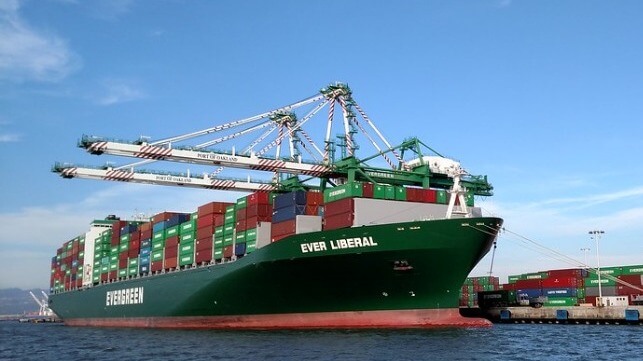Court of Appeals Calls FMC “Illogical,” Overturning D&D Fee Ruling

Evergreen won an appeal in the U.S. Court of Appeals in Washington D.C. in a case over the application of detention and demurrage fees (D&D) that could be a significant blow in the long-running battle between shippers and carriers over the hotly contested fees. While on face value the case was over $510 in fees, the court found that the Federal Maritime Commission was “illogical in its position” siding with the Taiwan-based carrier that the government regulator had a “myopic focus” and was acting in an “arbitrary and capricious” manner.
The Federal Maritime Commission sought to aid in resolving the battles over D&D fees by issuing an interpretive ruling as guidance to the carriers and terminals on the appropriateness of the fees and when they can be applied. Carriers argue that the fees serve as an incentive for the speedy removal of containers and the return of equipment to aid in freight fluidity. Shippers increasingly during the pandemic and the subsequent surge in container volumes contested the charges and the unwillingness of carriers to waive fees. The FMC has received an onslaught of complaints from shippers.
One of the flashpoints is the charging of fees on days when the ports or terminals were unavailable for returns. Shippers have cited being charged despite the inability during the pandemic to get return slots or they contend ever more egregiously when ports or terminals were closed. The FMC in its rulemaking focused on this and specifically the issue of whether D&D fees are incentives.
Evergreen had invoiced trucking company TCW for the late return of a container and vehicle chassis used to deliver a container of motorcycles shipping from Japan, offloading in Savannah, Georgia, and being trucked to Yamaha Motor Company’s warehouse. Due to a COVID-related closure of Yamaha’s warehouse and then days when the Port of Savannah was closed, after free time from the carrier, the container was deemed to be four days late, and the chassis was 22 days late when it reached Savannah on May 26, 2020.
TCW was billed $1,490 in detention charges but objected to $510 for the days when the port was closed. Evergreen refused to waive the charges, but an FMC small claims hearing found for TCW. The FMC reviewed the findings and also found for TCW.
Evergreen petitioned the Appeals Court for a review arguing that the FMC application of the interpretative rule was arbitrary and capricious and failed to respond reasonably to its arguments. While the interpretative rule focused on the issue of incentives, the FMC at the time said extenuating factors also needed to be considered.
The court opinion finds that the FMC failed to follow its guidance in its interpretive rule on detention and demurrage and failed to offer a logical explanation of its reasoning. Because the FMC failed to respond to Evergreen’s arguments and adequately analyze the incentive effect of the detention charge, the Appeals Court found for Evergreen while calling the FMC’s focus on the incentive principle myopic.
The World Shipping Council quickly responded issuing a statement welcoming the opinion that overturned a ruling by the Federal Maritime Commission about when it is reasonable to bill detention charges.
“The opinion is an important reminder that the law applies to everyone, including an agency that issues regulations as well as the companies covered by those regulations,” said World Shipping Council President and CEO John W. Butler. “For regulation to be effective and fair, it needs to be clear and predictable. The FMC’s ruling that was vacated by the D.C. Circuit failed on both counts, and the Court made the right decision in recognizing the Commission’s mistakes in this case.”
The court’s decision could set a bigger precedent in the argument over D&D fees. It writes that “For those of Evergreen’s arguments to which the FMC did respond, its reasoning is, charitably put, implausible… the Commission errs insofar as it maintains a detention charge necessarily lacks any incentivizing effect because it is levied for a day on which a container cannot be returned to a marine terminal.”

that matters most
Get the latest maritime news delivered to your inbox daily.
Contrarily, the decision finds that charging the fees for days when a port has published it will be closed “heightens the incentive to return equipment on time.”
This has been a core issue in many of the claims brought before the FMC. There are larger, high-profile cases against major carriers being reviewed by administrative judges as well as many smaller claims. The FMC has frequently sided with shippers in disputes over D&D fees.
